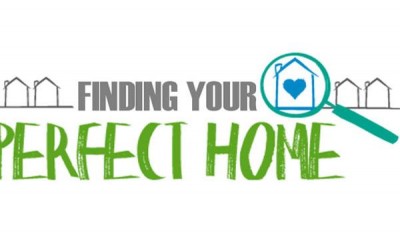
Five steps to buying your perfect home
Off By Ed HannaBuying a house is often said to be one of modern life’s most stressful experiences, especially for first time buyers, but there will be fewer nasty surprises if you’re prepared for each step of the process.
From working out how much you need to borrow, to getting the best price for your house, our guide should make the experience feel less daunting.
1. Speak to your resettlement officer
They will advise on the most up-to-date, affordable housing schemes available to Armed Forces personnel. There are a number of schemes for which you’ll receive priority status, such as Help to Buy in England and LIFT in Scotland. The Forces Help to Buy Scheme has been extended to 2018 for Service personnel. You may be entitled to borrow up to 50% of your annual salary – up to £25,000 – towards the purchase of a property, and costs associated with it. To be eligible, you must have completed two years of Service and have at least six months of Service left. www.gov.uk/guidance/ forces-help-to-buy
2. Establish your budget
Before you start thinking about a mortgage advisor, find out how much you want to spend, and how much you can afford. Bear in mind this figure will change when you add all the extra costs of moving home. The free online tool from Money Advice Service is a good starting point. Search ‘mortgage calculator’ on: www.moneyadviceservice. org.uk
3. Sort out your credit rating
A poor credit rating will seriously affect your chances of getting a mortgage so before you start looking for a property, look at your score. You can check your credit rating online using a number of reference agencies such as Experian or ClearScore. You can improve your credit rating by using direct debits, paying your bills on time and getting on the electoral register. Lending is a lot stricter since the financial crisis. A new rule stipulates that banks and building societies have to invite you for a mortgage appointment. They will ask you about your spending habits in a lengthy interview that can last up to three hours. You’ll need to bring in your payslips, bank statements and proof of any income and outgoings over the last six months.
4. Choose the right mortgage
There are so many types of mortgages it can be difficult to know where to start. In Scotland, you’ll need to get a mortgage ‘in principle’ before you can make an offer on a property. An Independent Financial Adviser (IFA) or a mortgage broker will ask about your financial situation to help you find the right package, sifting through all the options to help get you the best deal. One benefit of choosing an IFA is that you may have more legal protection if anything goes wrong. These services usually charge money, but will tell you all the prices upfront. Your bank or building society will also offer advice on which mortgage to choose. They’ll be familiar with your credit history and their service is often free. Ask questions to make sure you understand how the mortgage works before you make a final decision.
5. Dealing with estate agents
Ask the right questions and make the right choice. A salesperson with targets to meet may tell you what’s great about the property, but neglect to mention the party house next door. They don’t legally have to point out every problem, but if you ask questions, they are legally obliged to be honest.
Read the full article in our digital edition.



